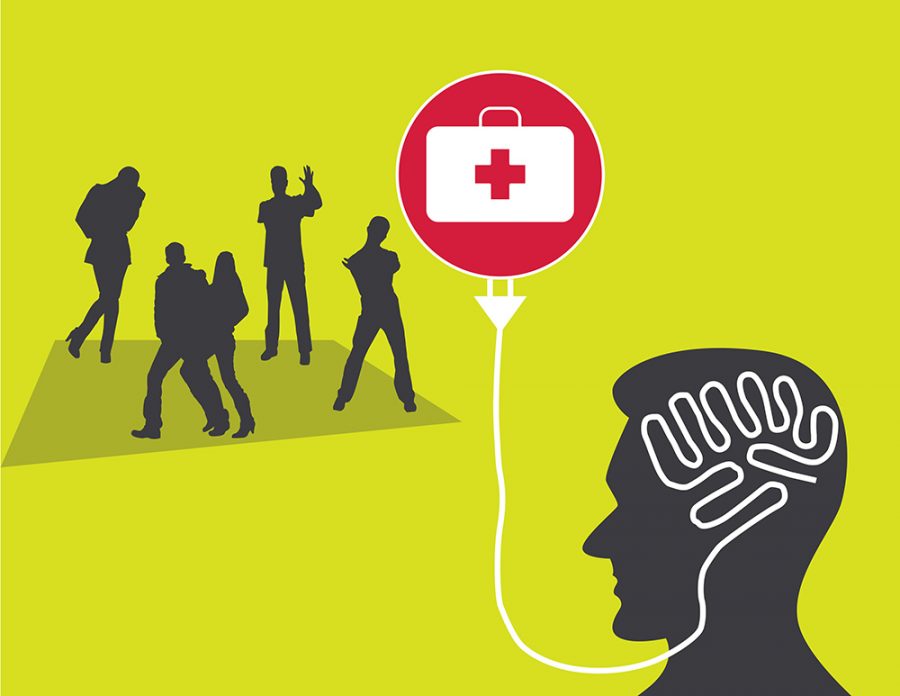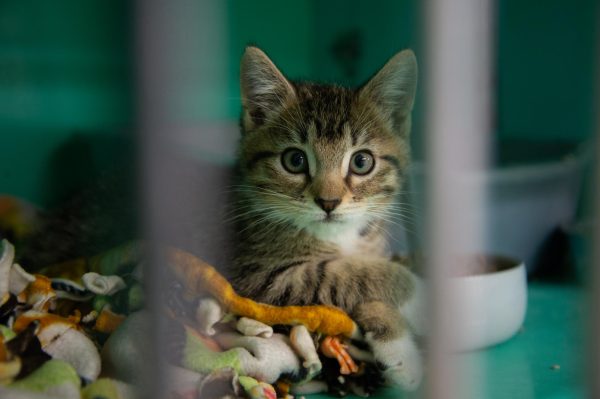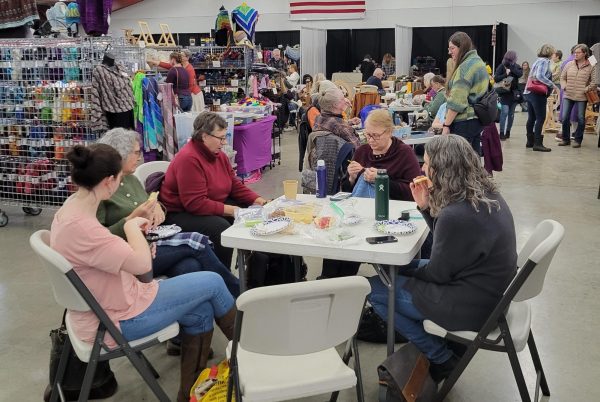Mental health during self-isolation: A guide
Try to take care of yourself in this time
It can be hard to keep your mental health in check when you can’t see friends. Here are some things to help.
March 31, 2020
Quarantine sounded like a great idea at the time. Now, a week has passed and students are becoming increasingly agitated and stressed. Mental health is declining and school persists.
Washington State, like hundreds of other universities, has resorted to online classes to complete the school year. With the need to participate in Zoom calls and the constant scrolling through social media, students are not giving themselves a break from the blue light. Because of this, there is no doubt that screen time has increased for many students.
The average adult spends about three and a half hours on a screen per day, according to 2019 study from the analytics company Zenith reported by The Washington Post and Vox in an article shortly after quarantine began. Whether this is checking email, scrolling through social media or completing other necessary items that need to be checked off their list, screen time has become an essential part of our life.
Screen time isn’t that big of a deal to author, speaker and educator Jordan Shapiro, however. How people are engaged with screen time is much more important.
“Are they just binge-watching videos, or are they involved in something creative?” he said in an article for NBC’s Today. “Are they playing alone, or are they involved in online, interactive multiplayer activities?”
As Shapiro acknowledges, people are also an essential part of our life. Baruch Fischhoff, PhD, and Kaitlin Luna from the American Psychological Association suggest in their podcast Speaking of Psychology that the reason mental health can decline in quarantine is because of the emotional ties that humans have to one another.
“There are people we love, and we care about them, and we’re anxious whenever they get sick,” Fischoff said in Speaking of Psychology. “They rally and we can just worry. It seems normal; a healthy human reaction takes toll.”
One of the ways that human reactions take toll is a decrease in mental health. The Centers for Disease Control and Prevention updated their COVID-19 page to remind students that stress during an infectious disease outbreak can include: “fear and worry about your own health and the health of your loved ones; changes in sleeping or eating patterns; and difficulty sleeping or concentrating” to name a few.
They recommend the following: “take breaks from watching, reading, or listening to news stories, including social media; take deep breaths, stretch, or meditate; try to eat healthy, well balanced meals; exercise regularly; get plenty of sleep; make time to unwind; try to do other activities you enjoy; connect with others.”
Lucy Perry, a freshman majoring in sociology, recommends self-care.
“[Do] any form of online yoga classes. FaceTime people you are worried about to check in. Connect with your pets,” she said.
“Eat healthy. Drink lots of water. Listen to podcasts and audiobooks. Find a hobby or project that puts you in a state of flow.”
Colin Warn, WSU student
Colin Warn, a junior studying mechanical engineering, suggests healthy routines.
“Get enough sleep. Be active: yoga, runs, bodyweight workouts and Brazilian Jiu Jitsu drills are my go-to,” he said. “Eat healthy. Drink lots of water. Listen to podcasts and audiobooks. Find a hobby or project that puts you in a state of flow.”
Hailey Weed, a senior studying psychology, encourages the same thing.
“I am really trying to focus on fitness and my physical health during this time, and trying to eat healthier because I have a lot of time to cook,” she said.
Jake Bailey, a junior studying chemistry, said, “Zoom hangouts to catch up with big groups. Play Xbox and other gaming platforms to keep in touch.”
Warn also suggests something more thoughtful.
“Do a random act of kindness. Suffering tends to come from focusing on yourself. Happiness tends to come when you think of things you can do for others,” he said.
People are programmed to act on behaviors that release healthy endorphins. And people are often stronger than they think, Fischoff said in Speaking of Psychology.
“[People] are resilient; they’re mutually supportive; they rally to one another; they make the best of a bad situation,” Fischoff said. “If we rely on people’s natural resilience and if the authorities treat them in a respectful way and attend to their material needs as well as they can, most people I believe will get through it well.”





















